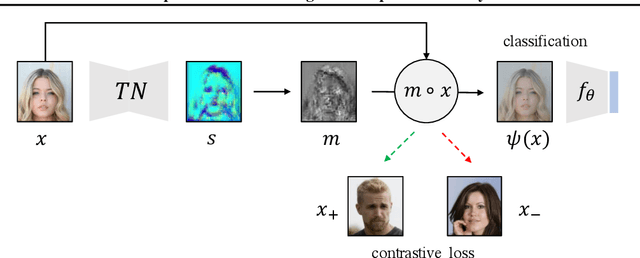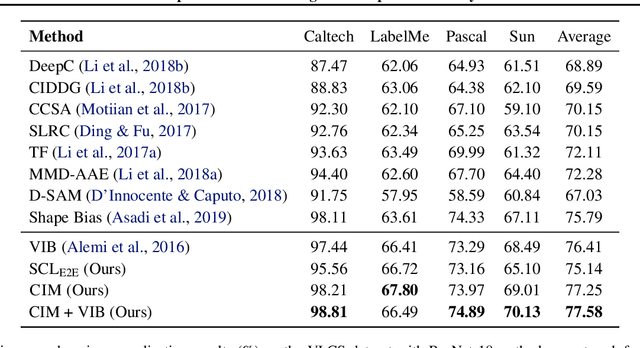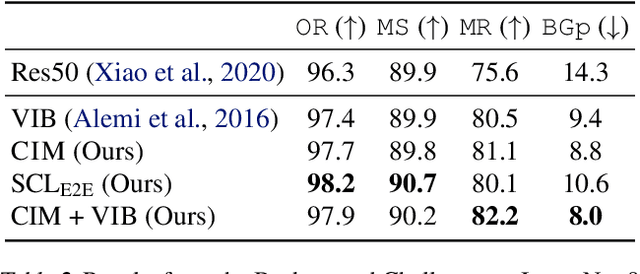Robust Representation Learning via Perceptual Similarity Metrics
Paper and Code
Jun 11, 2021



A fundamental challenge in artificial intelligence is learning useful representations of data that yield good performance on a downstream task, without overfitting to spurious input features. Extracting such task-relevant predictive information is particularly difficult for real-world datasets. In this work, we propose Contrastive Input Morphing (CIM), a representation learning framework that learns input-space transformations of the data to mitigate the effect of irrelevant input features on downstream performance. Our method leverages a perceptual similarity metric via a triplet loss to ensure that the transformation preserves task-relevant information.Empirically, we demonstrate the efficacy of our approach on tasks which typically suffer from the presence of spurious correlations: classification with nuisance information, out-of-distribution generalization, and preservation of subgroup accuracies. We additionally show that CIM is complementary to other mutual information-based representation learning techniques, and demonstrate that it improves the performance of variational information bottleneck (VIB) when used together.
 Add to Chrome
Add to Chrome Add to Firefox
Add to Firefox Add to Edge
Add to Edge